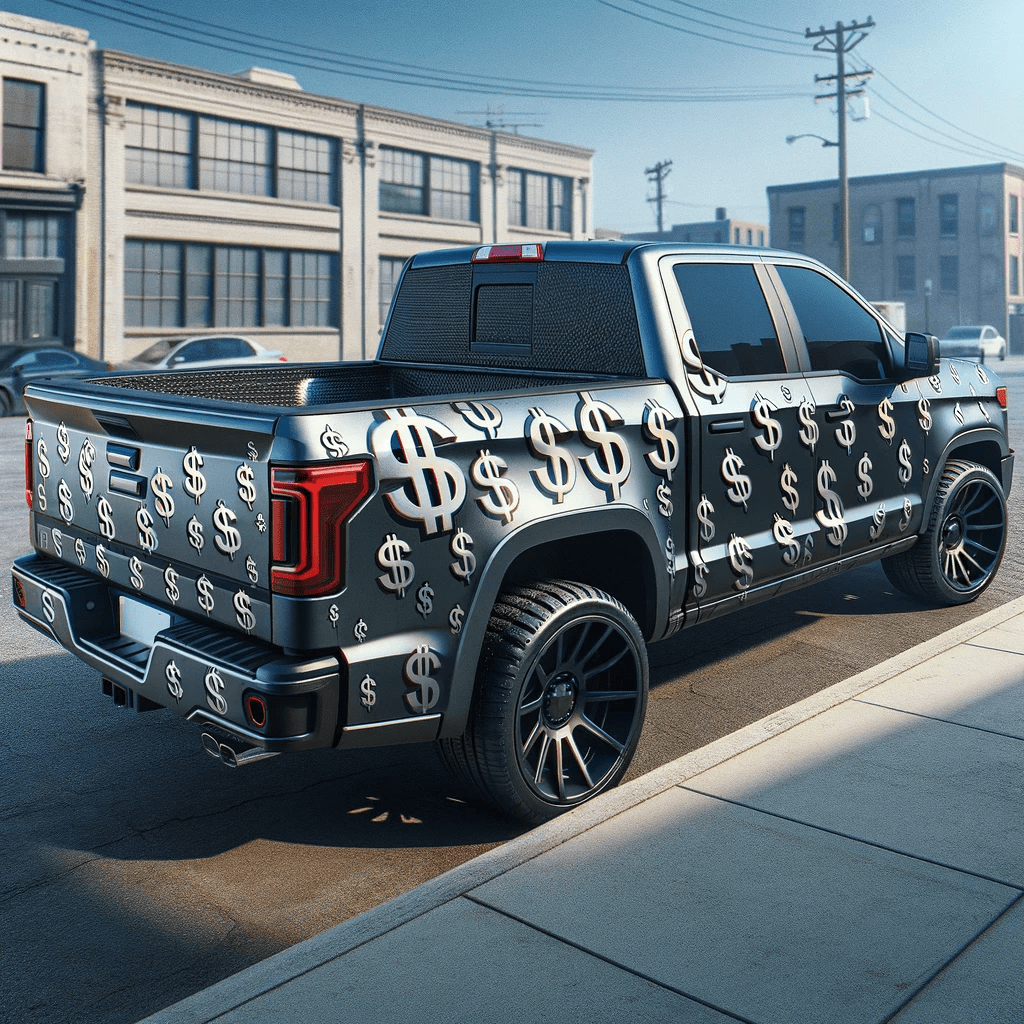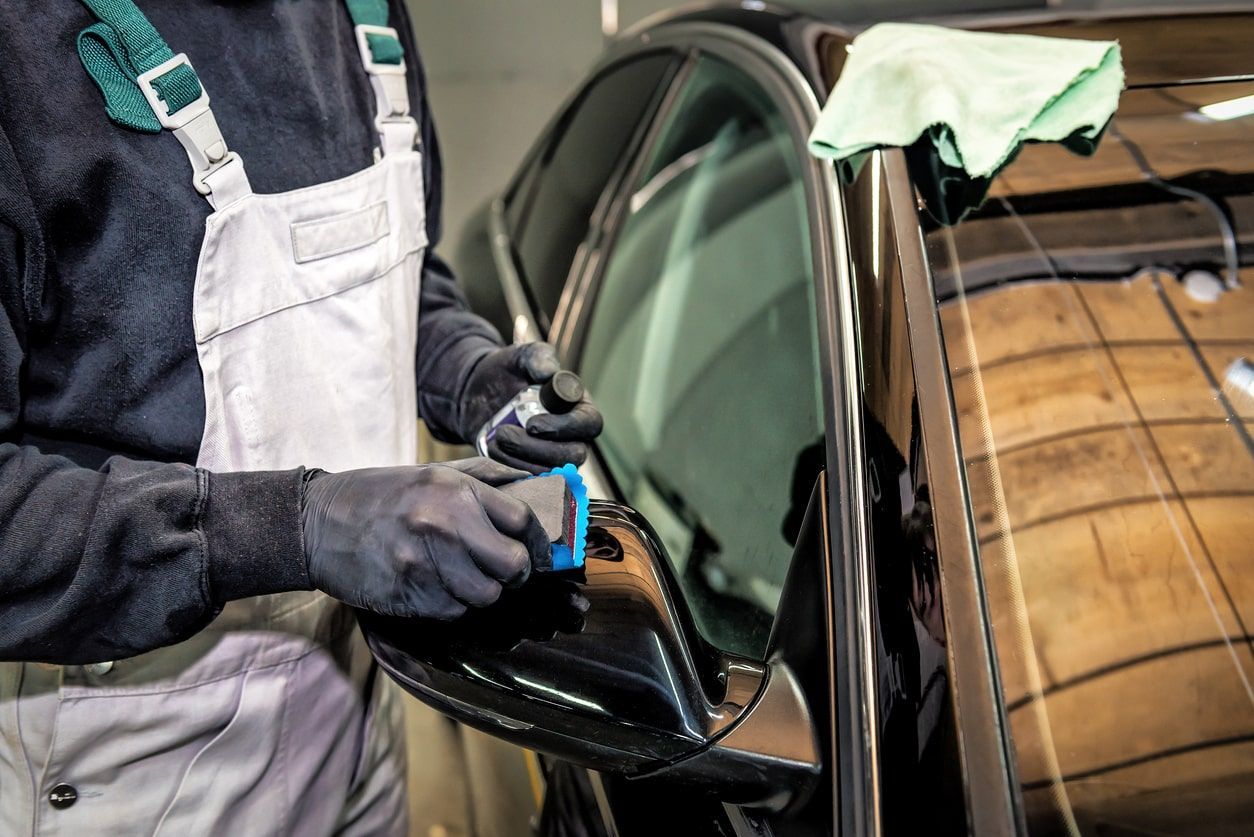How Winter's Harsh Conditions Damages Your Car's Wheels and Paint
This is a subtitle for your new post
The harsh conditions of winter often spell trouble for vehicles. From snow, ice and salt on the roads to freezing temperatures, cars endure a lot in cold weather climates. Unfortunately, the exterior paint and wheel surfaces take the most brutal beatings leading to corrosion, cracking, pitting and costly repairs come spring.
Here we’ll examine the multitude of ways winter precipitation and extreme cold inflict vehicular harm and best practices every driver should adopt before the mercury plummets.
Road Salt Damage Explained
One winter driving hazard motorists brace for is snowy, slippery roads often heavily treated with rock salt intended as an abrasive grip enhancer. What drivers don’t realize is how incredibly corrosive common sodium chloride road salt proves particularly to auto exteriors. As vehicles travel winter roads, the undercarriage, wheel wells, trim and more collect splattering salty slush.
Once temperatures rise during winter thaw cycles, leftover salt on a car combines with melted precipitation to create highly reactive solutions. These literally start eating away at unprotected paint, clear coat, chrome surfaces and wheels due to chemical reactions dissolving and pitting the various metals and materials. Paint blistering and bubbling occurs as corrosion takes hold underneath the delicate exterior surfaces.
Even vehicles parked in garages aren’t fully shielded long term. Salt laden snow blown in from undercarriage gaps causes as much invisible long-term metal corrosion as the more visible exterior paint damage from road dousing.
Ice and Snow Scratch Hazards
Attempting to clear thick accumulated ice and dense packed snow by force during bitterly cold snaps introduces plenty of surface level scratches and swirls as well. The combination of dried road salt, gravel and icy chunks scraped forcefully across paint often leave hairline scratches marring smooth finishes. Enough abrasions diminish luster and accelerate corrosion explanations when the thaw occurs.
Even plastic trim pieces, rubber seals and chrome surfaces suffer surface erosion from excessive ice removal efforts. Those attempting to desperately free frozen doors or hatch handles in a hurry prior to driving cause slip and fall paint chips and scratches too as keys and ring pieces flail. And the damage caused by compacted snow and ice isn’t just limited to sedans and crossovers but proves equally destructive to delicate custom alloy and even forged wheel designs.
Why Wheels Incur Winter Damage
Custom wheels encounter identical exposure to corrosive road treatment salts and the same ice clearing risks to their painted, anodized or powder coated finishes as vehicle bodies. What’s worse for rims though is the tendency for snow to compress into the tight intricacies of elaborate spoked designs commonly seen on aftermarket wheels. As temperatures plunge overnight, this tightly packed snow fuses into rock solid ice bricks within each rim.
Impatient drivers attempting to hastily chisel out the ice the next morning in order to avoid being late for work or other obligations often gouge and scrape the rims’ finishes badly in the process. Even with care, the tedious chore threatens wheel damage along with sore, numb hands. Excess force exerted to free frozen spokes risks fracture damage too - especially in cold climates prone to extreme overnight temperature drops and high moisture levels.
Luckily there are protective steps drivers can implement before the winter season hits along with proper responses once the hazardous conditions arrive to greatly reduce seasonal risks of exterior paint and wheel damage.
How to Reduce Winter Exterior and Wheel Harm
Start by protecting your vehicle’s finish before winter arrives with a fresh coat of durable polymer paint sealant or ceramic coating if possible. This sacrificial barrier helps repel initial moisture contact and bonding of salt and road chemicals across all exterior surfaces during winter commuting.
Place protective wheel well moldings along the inner fenders to block additional exposure for chassis paint when navigating pathways laden with salt and calcium chloride melters. Mud flaps flanking the wheel wells also assist by deflecting more slush spray kicked up by your own tires or other motorists away from rocker panels and doors.
Plan to immediately rinse your vehicle at least weekly at self-serve car washes during the winter months. Thoroughly hose off the entire undercarriage, body exterior, trunk seams and of course wheels to dissolve and prevent excessive salt and chemical buildup. Performing frequent rinses minimizes the length of exposure time for snow melt solutions to inflict corrosive reactions too.
Apply dedicated rim protectants featuring hydrophobic formulations to encourage snow sliding off spoke surfaces without sticking and collecting into crevices. Carefully working ice softening sprays into any compacted buildup helps lessen chiseling too. Avoid using boiling water to de-ice luxury or custom wheels to prevent thermal shock damage to special finishes.
Lastly, invest in custom car covers for vehicles parked outside overnight in regions expecting substantial snow accumulations. Secured covers form barriers preventing direct contact with snow piles potentially clinging to paint for days. Plus the breathable fabrics deter interior condensation buildup leading to corrosion underneath during sub-zero nights.
Professional Post-Winter Detailing
Despite best efforts maintaining winter exteriors, most vehicles will still exhibit some degree of harmless surface abrasions, swirling, oxidation and contamination once spring arrives. Start the restoration process by thoroughly washing the car yourself or at local drive through washes if temperatures have warmed sufficiently for effective soap and water cleaning.
Pay particular attention when hand washing wheels to use dedicated cleaners formulated to dissolve brake dust and road grime buildup within spokes and along the rear barrel behind each rim. Clean wheels set the stage for polishing and reprotecting for next season.
Next consider visiting professional detail centers offering paint correction services to remove more stubborn defects and oxidation as well as rejuvenating lost exterior shine. The multi-step processes combine machine or hand compounding followed by polishing deficient surface layers. Fresh applications of polymer sealants, ceramic coatings and wheel-specific waxes defend against future seasonal damage.
Rinse and repeat defensive preparations before the next winter onslaught arrives! Invest some diligence into minimizing risks of body and wheel damage during cold months and your vehicle’s exterior will continue looking its best for many years to come.
Want help?
We're the top auto detailers in the Evansville, IN and Henderson, KY area. Let our expert technicians affordably keep your car protected from Winter damage. Get a full detail, ceramic coating, or paint and wheel repair now.



